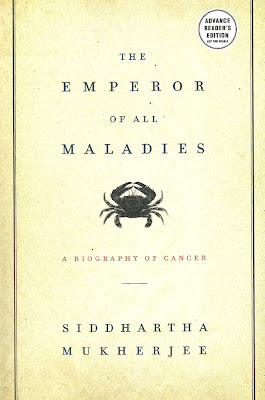I met a woman in
my doctor’s office this afternoon. I was
there having my port accessed so I could go over and get my MRI. She was there because she had recently been
diagnosed with breast cancer. She was
asking the nurses questions about what to expect. The subject of ports came up and I told her
about mine. That led to many other
questions and we all talked for quite awhile.
There are so many questions at the beginning of the cancer journey and
far too few answers. The answers that
you do get are often contradictory and vague because no two people experience
everything in the same way. These are
not the types of answers that you want at that time. You want someone to tell you exactly what it
will all be like and most importantly, that everything will be just fine. You don’t want to hear someone else’s horror
stories but you would like to learn from other’s mistakes. You don’t need to be reminded that you need
to look on the bright side (where is that side again?), from the optimistic pollyannas
who assure you that you will beat this thing, if you just decide to. Sure, you are planning on beating the cancer,
but you can’t just completely ignore that scary little voice that whispers,
“what if? what if?”. So I say, ask lots of questions. Take the answers you receive and filter
them. Keep the answers that work for you
and let the others slip off. Feel free
to ask; some won’t want to talk about
it, but for others it feels good to share experiences. It always makes me feel good when I can ease
someone else’s mind by letting them know how it went for me. At the very least, it reminds us that we are
not alone, even in the darkest hours.
After my port was
accessed and the lady and I hugged goodbye, I went over for my MRI. Once I got there I was informed that they
were running two hours behind (shocker.), so I headed home for a nap. But I couldn’t fall asleep. I kept thinking of the woman from the doctors
office. She seemed so brave and strong
standing there facing down a den full of lions.
I was proud to stand by her side for a moment, lending a shoulder to
lean on. So I dug through my bookshelf
and found my favorite book on cancer, “There’s No Place Like Hope” by Vickie
Girard. I wrote a little note to go with
it, wrapped it with a ribbon and took it back to my doctors office. I asked the receptionist if she would give it
to that lady and she assured me that she would.
It was nothing big, it might not mean much, but for me it was a moment of
grace and I’m glad I followed my heart to it.



